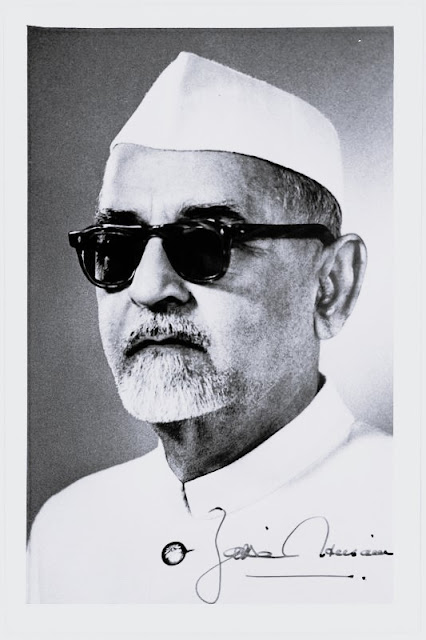Learn about Zakir Husain, India's third President, and his legacy as a distinguished educationist, freedom fighter, and leader. Discover his contributions to India's social and educational development, his achievements, his family background, and more.
Zakir Hussain was a prominent figure in Indian history, known for his role as India's third President and his contributions to the country's political and social development. This SEO-friendly article provides an in-depth overview of Zakir Hussain's life, accomplishments, family background, and more. Discover how this respected leader left a lasting legacy through his dedication to public service, education, and national unity.
Early Life and Education
Zakir Husain was born on February 8, 1897, in Hyderabad, then a princely state. He hailed from a family of scholars and educationalists. His father, Fida Husain Khan, was a renowned scholar, and his mother, Naznin Begum, was a devoted social worker. Zakir Husain had his early education in Hyderabad and then went to England to complete his higher studies. He earned a Bachelor's degree in English from St. Xavier's College, Calcutta, and a Doctorate in Economics from the University of Berlin.
Role in the Indian Independence Movement
Zakir Husain was a staunch believer in India's freedom and actively participated in the Indian Independence Movement. He was a close associate of Mahatma Gandhi and played a significant role in organizing the Khilafat Movement, which aimed to support the cause of the Ottoman Empire against the Western powers. He was also a member of the Indian National Congress and participated in several non-violent movements, including the Salt Satyagraha and the Quit India Movement.
Role in the Field of Education
Zakir Husain's greatest contribution to India's social and educational development was his work in the field of education. He firmly believed that education was the key to India's progress and dedicated his life to the cause of education. He served as the Vice-Chancellor of Jamia Millia Islamia, a premier educational institution in Delhi, and played a vital role in its growth and development. Under his leadership, the university expanded its academic programs and became a center of excellence in higher education.
President of India
In 1967, Zakir Husain was elected as the third President of India, becoming the first Muslim to hold the position. His presidency was marked by a deep commitment to the values of democracy, secularism, and national unity. He worked to strengthen the role of the President as a custodian of the Constitution and as a unifying force in Indian society. He was a respected leader known for his intellect, integrity, and humility.
Accomplishments
Zakir Husain's presidency was marked by numerous accomplishments, including his efforts to promote scientific research and development in India. He established the National Council of Educational Research and Training (NCERT) and the Indian Council of Social Science Research (ICSSR), two organizations that have played a significant role in the development of education and social sciences in India. He was also a strong advocate of cultural exchange and played a vital role in promoting India's cultural heritage abroad.
Personal Life and Legacy
Zakir Husain was married to Safia Begum and had two daughters. He was a prolific writer and scholar and wrote several books on education, culture, and social issues. His legacy continues to inspire generations of Indians, and his life and work remain a shining example of the highest ideals of public service, social justice, and national unity.
Conclusion
In conclusion, Zakir Husain was a remarkable leader who dedicated his life to the service of the people of India. His contributions to India's social and educational development are unparalleled, and his legacy continues to inspire and guide the country. As India's third President, he set a high standard for future leaders to follow. His life and work remind us of the importance of education, democracy, and national unity. Zakir Husain remains an inspiration to us all.

Comments
Post a Comment